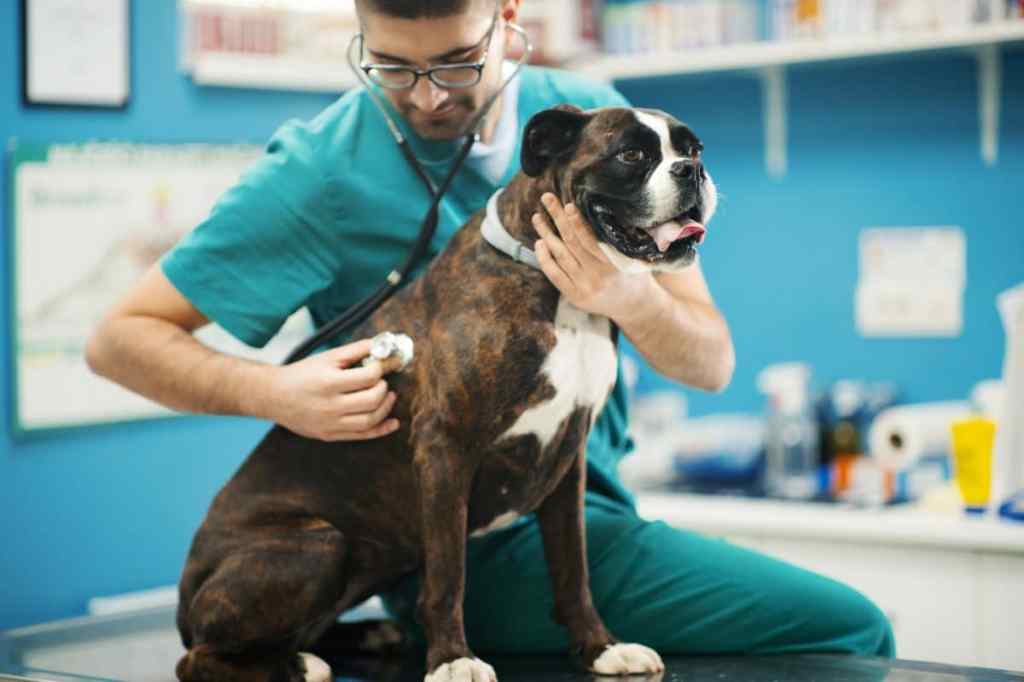Upper respiratory infections in dogs can affect the bronchi, trachea, throat, and nasal cavities and are common, especially in ones with compromised immune systems. These infections are often caused by bacteria and viruses that are quite contagious, which is why outbreaks are often seen in shelters, kennels, or places where a lot of dogs are together in a close space.
Upper respiratory infections are usually difficult to treat in dogs, and relapses happen often. Most dogs will have at least one upper respiratory infection in their lifetime. Here’s what you should know about the symptoms, causes, and treatments for upper respiratory infections in dogs.
Symptoms of upper respiratory infection in dogs
Symptoms can vary somewhat depending on the cause of the infection. The symptoms are typically similar to those of the common cold in humans, like sore throats, runny noses, coughs, etc. If you see the signs of infection, then it is important to get to the veterinarian right away to begin treatment quickly and avoid complications.
If you see the following symptoms in your dog, then get to the vet for a proper diagnosis and treatment:
- Nasal discharge
- Eye discharge
- Fever
- Itchy nose
- Sneezing
- Coughing, snorting, and wheezing
- Gagging or retching
- Dry nose
- Drooling or foaming at the mouth
- Ulcers of the mouth or nose
- Loss of appetite
- Weight loss
- Dehydration
- Lethargy
- Exercise intolerance
Causes of upper respiratory infection in dogs
There are several bacterial and viral causes of upper respiratory infections in dogs. Puppies, senior dogs, and dogs with compromised immune systems are more at risk.
Bordetella bronchiseptica is the most common bacteria that causes upper respiratory infections. This highly contagious bacteria can spread between dogs through coughing, clothing, or shared water bowls. It can lead to further secondary infections of E. coli, staph, and strep if untreated, and puppies may develop bronchopneumonia.
Upper respiratory infections in dogs can also be caused by viruses such as distemper, adenovirus, and influenza, among others. Parainfluenza is the most common viral cause of canine upper respiratory infections. Any of these viruses can cause severe damage to the respiratory system and lead to upper airway disease.
Additionally, sometimes parasites can cause upper respiratory infections. For example, Pneumonyssoides caninum, more commonly known as the canine nasal mite, can cause a number of symptoms and leave dogs open to secondary infection. However, canine nasal mite infection is rare in North America.
Lung flukes, which live in pulmonary cysts in the lungs, may also cause upper respiratory infection symptoms, though they are very rare and transmitted by eating crayfish.
Treatments for upper respiratory infection in dogs
Prevention is key to supporting effective treatment. Vaccinations are available for many diseases that cause infections and may also help reduce symptoms in cases where no specific vaccine exists.
If an upper respiratory infection does occur, antibiotics are often prescribed to help fight the disease. Doxycycline is a common drug that fights off Bordetella, for instance. Azithromycin might be used instead if doxycycline fails, as it is more powerful.
Veterinarians may also prescribe nose drops, rest, and lots of water to help dogs recover. In extreme cases, intravenous fluids and nutritional supplements may be provided. During the infection, dogs should stay away from other animals to avoid spreading the disease.




